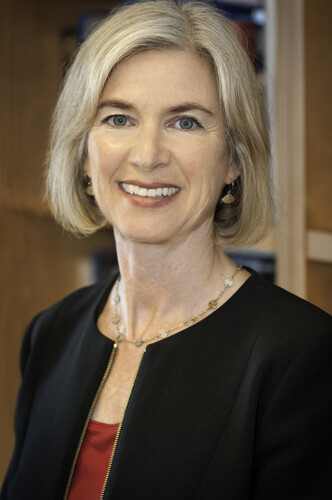
October 14, 2020
The 2020 Nobel Prize in Chemistry was awarded on Wednesday, October 7th to Jennifer Doudna and Emmanuelle Charpentier for “the development of a method for genome editing.” Doudna and Charpentier developed the bacterial CRISPR-Cas9 system into a gene editing technology that has been employed by researches worldwide and across many different fields. Doudna is the Li Ka Shing Chancellor’s Chair and Professor of Chemistry and Molecular and Cell Biology at University of California, Berkeley. Charpentier is the Founder and Director of the Max Planck Unit for the Science of Pathogens.
In Yale’s MB&B department there was particular excitement surrounding Doudna’s award due to her history with the department. Doudna launched her research group as an assistant professor in MB&B in 1994, later becoming a Henry Ford II Professor of MB&B. Doudna was at Yale for 8 years before moving to University of California, Berkeley. Many MB&B faculty members who had worked with Doudna while she was at Yale expressed excitement and support of her career. Some also offered reflections on her contributions to the department.
“In the mid-nineties MBB offered an exciting course: ‘Proteins and Nucleic Acids’ taught by Paul Sigler, Tom Steitz, Jennifer Doudna and me,” wrote Dieter Söll, Sterling Professor of MB&B, reflecting on his experience teaching with Doudna early in her career. “I remember well, Jennifer was an inspiring teacher!” Professor Söll added that the department was sorry to see her leave.
“Jennifer was treasured as a colleague, by faculty and trainees alike,” wrote Joan Steitz, Sterling Professor of MB&B. Professor Steitz also highlighted the impact of joining Yale’s MB&B department on Doudna’s career: “I believe that without transitioning from an RNA biochemist into a structural biologist – enabled by MBB’s strength in the latter sphere – Jennifer would not have later become interested in the functioning of a primitive system such as CRISPR. We celebrate her creativity and foresight, as well as her consummate expertise.”
This year’s Nobel Prize in Chemistry is notable for being the first time two women were jointly awarded a Nobel Prize in the sciences. Prior to this year, only 5 women had won the Nobel Prize in Chemistry since its origin in 1901.
Announcement on Nobel Prize Website: https://www.nobelprize.org/prizes/chemistry/2020/summary/
UC Berkeley article, including press conference video: https://www.universityofcalifornia.edu/news/jennifer-doudna-wins-2020-no…
By Melanie Reschke